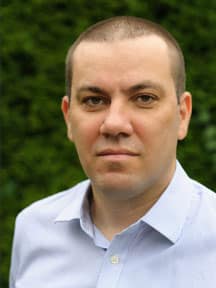(M-J Milloy will be a panelist at the Georgia Straight’s upcoming event, Grassroots: An Expo for the Cannabis Curious on April 7 and 8, 2018. Get your tickets now.)
A UBC research scientist from the Faculty of Medicine says policy makers need to pay attention to the realities of B.C.’s preexisting cannabis industry as they consider the implications of legal cannabis in the province.
M-J Milloy has centered his research on public health issues including HIV/AIDS, addiction, and cannabis use. He told the Straight earlier this week that he was glad to see the government take the necessary step of engaging with the public on the issue.
‘I think it’s crucial given that there are thousands of British Columbians involved in the current system as producers or distributors or consumers, so getting their take is important,’ Milloy said.
‘The problem is that up until now it’s been governed by public security and criminal enterprise, and I think we all agree that has to change.’
He said that creating a public health system and transitioning from the current one would be a challenge for local governments, especially when so much of the federal government’s focus is on completely eliminating the black market.
The trouble, Milloy said, lies in creating a system that will be more appealing to users than what already exists.
‘Part of the health-based system is that the government has to figure out a way that’s better at meeting the needs of cannabis consumers than the system we already have,’ he said.
Having tuned in online to this week’s Union of B.C. Municipalities convention, Milloy echoed what a few councillors at the event had to say about including veterans of the cannabis industry in the province’s framework—but for a reason none at UBCM had considered.
‘To get rid of the illicit market, the government has to figure out a way of bringing these people into the legal fold, because we know that there will not be enough cannabis from licensed producers on day one of cannabis legalization,’ he said. ‘We’re going to run out immediately.’
Even if all levels of government worked together to create the best system possible, Milloy said, it wouldn’t matter without enough product on the shelves.
‘That means producers, dispensary operators, mom and pop growing it in their basement or their backyard—that is the way we eliminate the illicit system—by including everyone,’ he said.
As per Bill C-45, production is in the hands of the federal government, but with enough push from British Columbians, he hopes to see the province generate dialogue about making room for a less stringent licensing program.
Earlier this year, research conducted by his team showed that crack users were able to cut down on their use of the drug by supplementing with cannabis. Another study that Milloy is currently working on will survey dispensary users in Vancouver about their use of cannabis. (You can still participate in that survey here.)
‘As someone who works with people who use drugs, people on the Downtown Eastside, and people who use cannabis for therapeutic purposes, I hope the government keeps in mind the need that many British Columbians have for dispensaries,’ he said.
While Health Canada has operated a medical cannabis program since 2001, Milloy said that local governments shouldn’t overlook the fact that many patients opt to shop at dispensaries instead of licensed producers.
While reasons for this vary from one individual to the next, the Straight has spoken with a number of registered medical marijuana patients who say they fear they’ll lose access to the remedies that work for them (concentrates, topicals, and other products not available through Health Canada) if they’re required to go back to the federal system.
In Milloy’s eyes, patients using dispensaries are one of two user groups that stand to be negatively impacted if policy makers create a framework that vows to eliminate the current market. The other vulnerable population, he said, was other drug users, who often use cannabis in place of other street drugs.
















